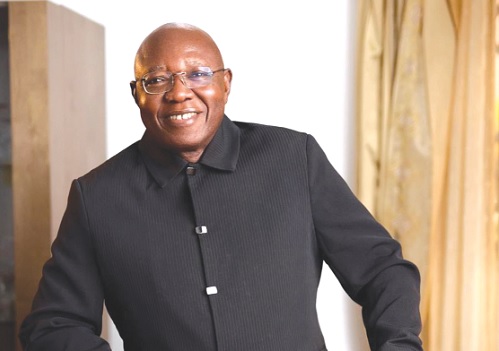Dr Akwasi Opong-Fosu, Chair of the Africa Global Emergence Centre, has called for a global rethink in the fight against corruption, describing the menace as "corrosive" and a major impediment to equitable development, good governance, and public trust.
Speaking at a virtual Anti-Corruption Roundtable Forum co-hosted by the Global Chamber of Commerce and the University of South Carolina’s Sonoco International Business Department, Dr Opong-Fosu said corruption’s impact is far-reaching, eroding the very foundation of democratic societies.
“Corruption is corrosive and its consequences reach deep into every fabric of society. It erodes trust in government and public service, distorts markets, deters investment, and stunts economic growth,” he said.
The forum, held on the theme “Towards a New Anti-Corruption Agenda: Lessons from Diverse Stakeholders in Africa and the West”, brought together African and Western experts from public and private sectors, civil society, and academia. The event sought to explore practical, collaborative approaches to tackling corruption in a rapidly evolving global context.
Dr Opong-Fosu stressed that anti-corruption strategies must evolve with the times. “Effective anti-corruption efforts in a rapidly changing world require a shared understanding of the changing nature of the problem and an openness to new solutions,” he noted.
He highlighted the global scope of corruption, citing examples from both developed and developing nations. These included the infamous 1Malaysia Development Berhad (1MDB) scandal, in which over $4 billion was embezzled from a state investment fund, and the revelations from the Panama and Pandora Papers, which exposed how elites exploit offshore tax havens to hide wealth.
Other cited examples included major bribery scandals involving corporations such as Oracle, ABB, and Frank’s International, each paying heavy penalties for corrupt practices in emerging markets. He also referenced legal troubles faced by high-profile politicians like former French President Nicolas Sarkozy and US Senator Bob Menendez.
“These cases show that corruption is not a uniquely African problem. It is global, embedded in both public and private sectors. It will be disingenuous to critique international corruption and ignore our own house. Ghana, too, faces a crisis of accountability,” Dr Opong-Fosu said.
He revealed that Ghana loses an estimated GH¢9.02 billion annually to corruption, tax evasion, smuggling, and inefficiencies, citing figures from Professor Isaac Boadi, Dean of the Faculty of Accounting and Finance at the University of Professional Studies, Accra.
“That amount is equivalent to six times the annual cost of the Free Senior High School programme and nearly five times the National Health Insurance Scheme’s budget allocation,” he lamented.
According to him, these are not isolated incidents but systemic failings that demand structural reforms and robust institutions. “Until we build institutions that demand and enforce accountability, these patterns will persist,” Dr Opong-Fosu added.
He concluded by urging stakeholders from all regions to adopt a united front in combating corruption, describing it as the only path to sustainable development, democratic resilience, and shared prosperity.

